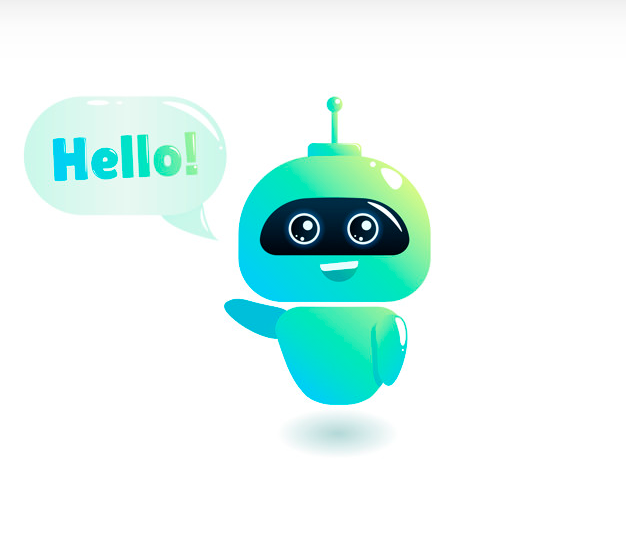Understanding Adaptive Intelligent Apps
Audio : Listen to This Blog.
Adaptive Intelligent Applications
Oracle is venturing deep into adaptive intelligence and it is all over the news. So what should you do now? Do you start right away and make adaptive intelligent apps for your business? Why not start with understanding adaptive intelligent apps and how they help your business?
Artificial intelligence is a vast field. Among the various subset categories delving into the enterprise scenario is adaptive intelligence. Intelligent apps can enhance user engagement. Taking business intelligence a step further, the key is to frame a business model that can continuously adapt itself to the changing market trends.
Imagine the following scenario:
You develop an intelligent app. You train it with an extensive data set and after stringent testing release it to the target audience. Your app then continuously starts learning the user behavior. The app then further fine tunes itself and uses the acquired data to train itself. Wouldn’t this adaptive learning make your intelligent app really ‘intelligent”?
This is what adaptive intelligent apps are all about. The app learns the customer interaction pattern and improvises itself. Your customers would be happy with the smart app and you would notice a notable improvement in your revenue thanks to the better conversion rates. Isn’t that not what an app is actually meant to do for the business and for the customers? This is why the major tech giants are all talking about adaptive intelligent apps in the recent times.

What really is an adaptive intelligent app?
As the name goes, it is an app that is both adaptive and intelligent and thus adds value to your business in unprecedented ways. As more number of users start using the app, it starts learning better and tweaks the way it reacts. This would ensure that as the user uses the app, he would start noticing the app response getting more and more relevant in the long run. So you make a great app and it becomes greater use-after-use.
With current business scenario, no business is self-sustained. Each relies on customer data and market parameters available from the already existing businesses. There is a healthy competition that helps businesses compete better and grow better. The adaptive intelligent apps can smartly trigger real-time responses which are contextual and personalized.
Business intelligence made more robust with Adaptive Intelligence:
Each customer has a different perspective of the business. So no matter how well you understand the target customer segment, it is pretty difficult to satisfy every customer. It involves a continuously learning and transformation process. Data mining, data analytics and several other segments make business intelligence a crucial domain in today’s world. This requires businesses to constantly data and modify the business processes so as to fulfil the varying demands of the customers.
Business intelligence can be given a more tangible form with the help of adaptive intelligent apps. This is a technology that cannot function or grow independently. Cultivating the data accumulated in the Cloud, analyzing and using it in the decision making process is what makes adaptive intelligent apps great.
Here is what you can expect your adaptive intelligent apps to deliver:
Customer experience, Supply Chain Management, Enterprise Resource Planning and Human Capital Management are few among the plethora of business segments that can benefit and get better with adaptive intelligence.
1. Contextual and relevant responses:
You would have an app that delivers not just data-driven results but also results that are totally justified for the context. One of the main benefits of intelligent apps is the way they easily handle large volumes of data.
2. Hassle-free apps that self-train:
Larger datasets aren’t easy to compile. But the larger the dataset used to train, the better and more intelligent would the app be. So a self-learning app is the answer. This would help the app create its own datasets to train itself. The user interactions with the app are truly two-way communications that enhance the value of the app.
3. A collaborative and focused approach:
Once you launch your app, several users all over the world would be using it. This would mean that various types of user behaviors would have to simultaneously be monitored and comprehended. This would help the app offer focused results to every user that uses it.
Data science is a field that is growing at an explosive rate. This makes the job of the data scientists tougher. But adaptive intelligence would help apps ease the burden of data scientists. So, no more complicated data extraction and data processing would be required to synthesize and train the artificial intelligent system.
Adaptive intelligence can thus, fully integrate enterprise data to enrich customer experience. This makes these apps suitable for large scale integration. Now as businesses are moving to the Cloud due to the scalability it offers. So, for a business’ app to support the Cloud, one with adaptive intelligence is the best choice. The best part here is that unlike with conventional training, these self-trained apps draw data from a wide variety of sources. This data is then consolidated and relevantly sorted so as to design better exchange of data.
Oracle’s adaptive intelligent apps would soon be available for large level establishment. As one of the pioneers, the company has now encouraged several other businesses to come forward and make adaptive intelligent apps. So now would be time to start evaluating the scope of adaptive intelligence in your business. This would ensure that your apps interact better and understand user requirements with utmost lucidity.


